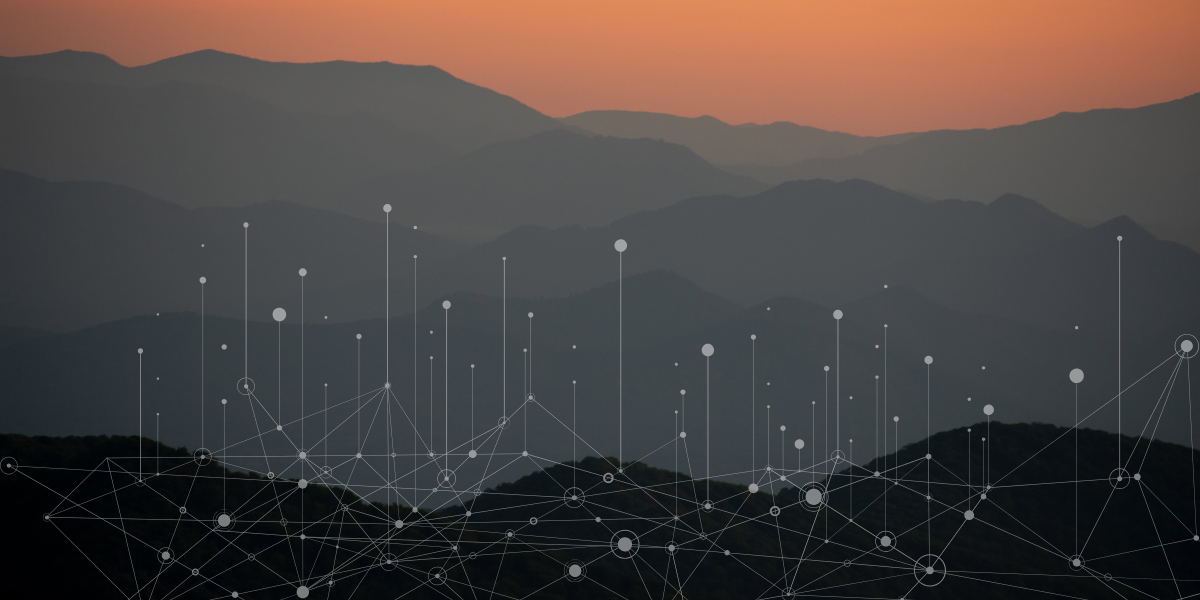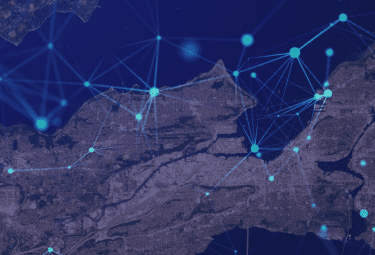Innovation to Impact. See you at the July ESIP Meeting.
Data Ethics and Collaboration in Earth Science

Collaboration is what we do in the Earth Science Information Partners (ESIP) community. This year, the ESIP Meeting theme has been “Grounded in Trust: Data Ethics Empower Collaboration.”
How we gather, group, analyze and share data matters. Datasets, data products, workflows and computing processes do not happen in isolation. Even with the cleanest, machine-readable, automated data, there are still human dimensions.
But when we say “data ethics empowers collaboration” in the Earth sciences, what do we really mean?
Well, it’s not a simple answer. But we had some brilliant people share their insights this year, and our video essay shares some of the highlights.
Individual stories weave together into the History of the People of ESIP (HOPE) project. Just as data ethics does not rest on a single principle, and is an ever-evolving conversation, ESIP is not a single story, but many.
The HOPE project, led by Wade Bishop with filming and editing by Peter Emerson and Lincoln Bohrer, was a 2023 FUNding Friday award. The HOPE interviewees often speak directly to ethics, collaboration, actionable data and ESIP’s vision for data-driven solutions. The interviews’ greatest power, however, is as a whole: Diversity speaks louder than the sum of its parts.
On the heels of the Year of Open Science and the rise of mainstream generative AI, more communities of practice focused on ethical and collaborative frameworks. Traversing disciplines, career stages and private-public partnerships takes patience, integrity and skillful adjustments. Collective work is not easy. But we do not have to make it harder.
In her opening remarks, Susan Shingledecker uses a metaphor to help explain collaboration as she sees it in her role as ESIP’s executive director. Like the Earth science data community, the Wizard of Oz story gathers a team of unlikely collaborators.
As the Fisheries and Wildlife Supervisor for the Eastern Band of Cherokee Indians, Caleb Hickman sees many opportunities for more effective, more respectful research and data management practices.
Many in the ESIP community felt inspired after his plenary. So much so that one of the top FUNding Friday projects focused on co-creating Indigenous data sovereignty tools and led to the creation of the Data Sovereignty Cluster.
In actionable data ethics, nothing can replace the foundation of data governance. Even in some of our most innovative spaces, working with exciting and evolving tools, sometimes the community needs to take a breath and think through use cases and standards.
Briana Págan offered insights into that process for the Information Technology and Interoperability (IT&I) Committee and USGS Community for Data Integration (CDI).
The Open Geospatial Consortium (OGC), an ESIP Partner, reviews and endorses community standards for different Earth science data tools and processes. As cloud-native technology like GeoZarr continues to grow in popularity, it is crucial to have conventions to organize and describe data in order to ensure efficient collaboration.
Building responsible data systems requires more than good intentions. As Kasia Szeto Chmielinski from The Data Nutrition Project points out in their talk, many of the fears around artificial intelligence (AI) focus on future existential risk. But building new data products rarely considers marginalized users or the power dynamics of proprietary ecosystems.
That’s why The Data Nutrition Project built their documentation dashboard and label. They want to help make the importance of data collection and data quality more visible.
This blog was written by Allison Mills from ESIP with edits from Susan Shingledecker.
ESIP stands for Earth Science Information Partners and is a community of partner organizations and volunteers. We work together to meet environmental data challenges and look for opportunities to expand, improve, and innovate across Earth science disciplines.Learn more esipfed.org/get-involved and sign up for the weekly ESIP Update for #EarthScienceData events, funding, webinars and ESIP announcements.



